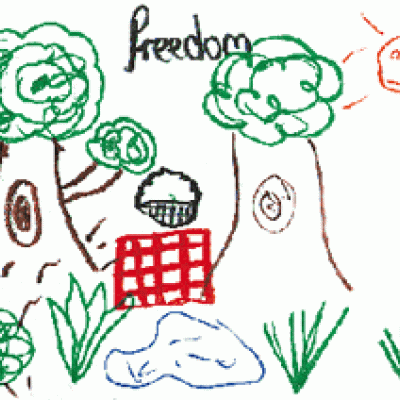Refine results
-
Rights and Freedoms14 December 2012Project

Rural and Remote Education Inquiry
Rural and Remote Education Inquiry The National Inquiry into Rural and Remote Education was initiated by the Commission in February 1999. The 1998 Bush Talks consultations on the human rights concerns of regional, rural and remote Australians had revealed that access to education of an appropriate standard and quality was a significant concern in rural and remote areas. In this section you… -
14 December 2012Book page
Annual Report 1999-2000: Human Rights
The experience of people in rural and remote Australia has always featured prominently in the Commission's work. During the reporting year the Commission undertook two major projects addressing the human rights of children and young people in rural and remote Australia. -
14 December 2012Book page
Human Rights Publications
Reports on complaints of discrimination on the grounds of sexual preference, criminal record and trade union activity are available on our discrimination in employment and occupation page. -
14 December 2012Book page
Appendix 4: 'Accessible' and 'available': Social Justice Report 2008
Social Justice Report 2008 Appendix 4: ‘Accessible’ and ‘available’ Back to Contents Download in PDF Download in Word The following definitions of ‘accessible’ and ‘available’ were sourced from the Australian Human Rights Commission’s Rural and Remote Education Inquiry Briefing Paper. [1] A more detailed discussion of human rights provisions that are relevant to remote school education can… -
Aboriginal and Torres Strait Islander Social Justice14 December 2012Publication
Submission: Human rights and fundamental freedoms of Indigenous people
Submission to the Special Rapporteur on the situation of human rights and fundamental freedoms of indigenous people – Australian mission Indigenous People's Organisations Network of Australia 17 - 28 August 2009 Download Complete report PDF [667 KB] Complete report Word [502KB] Special Rapporteur on Indigenous Peoples’ - Australian Mission The Australian Human Rights and Commission has made… -
14 December 2012Book page
Chapter 4 - Introduction: Social Justice Report 2009
Social Justice Report 2009 Chapter 4: Sustaining Aboriginal homeland communities back to contents 4.1 Introduction 4.2 Definition of homelands 4.3 History of the homelands movement 4.4 Funding for homelands 4.5 The viability of homelands 4.6 Conclusion 4.7 Recommendation 4.1 Introduction Homelands still belong to the people, we want to build homes on our land and live there. When we come to… -
14 December 2012Book page
HREOC - Annual Report 2001 - 2002: Chapter 7: Race Discrimination
Dr William Jonas commenced duty as acting Race Discrimination Commissioner in September 1999 in addition to his duties as Aboriginal and Torres Strait Islander Social Justice Commissioner. -
14 December 2012Book page
5 Theme Three - Freedom from discrimination - Listening Tour Report
I believe sexual harassment in the workplace is still very prevalent but its victims remain silent. Most women have experienced some form of harassment in their jobs. However most women will refuse to report it or speak out against their bosses for fear of retribution. I have just been through [six] years of trying to seek some justice in my male dominated place of work. The sexual harassment… -
14 December 2012Book page
6 Issues raised outside the themes: Listening Tour Report
Research and literature: This section summarises research that is relevant to each sub-issue. It should be noted the research included in the report is not an exhaustive literature review, but a summary of the research that was presented to the Commissioner during the Listening Tour.
Pagination
- Current page 1
- 2
- 3
- Next page Next ›
- Last page Last »
